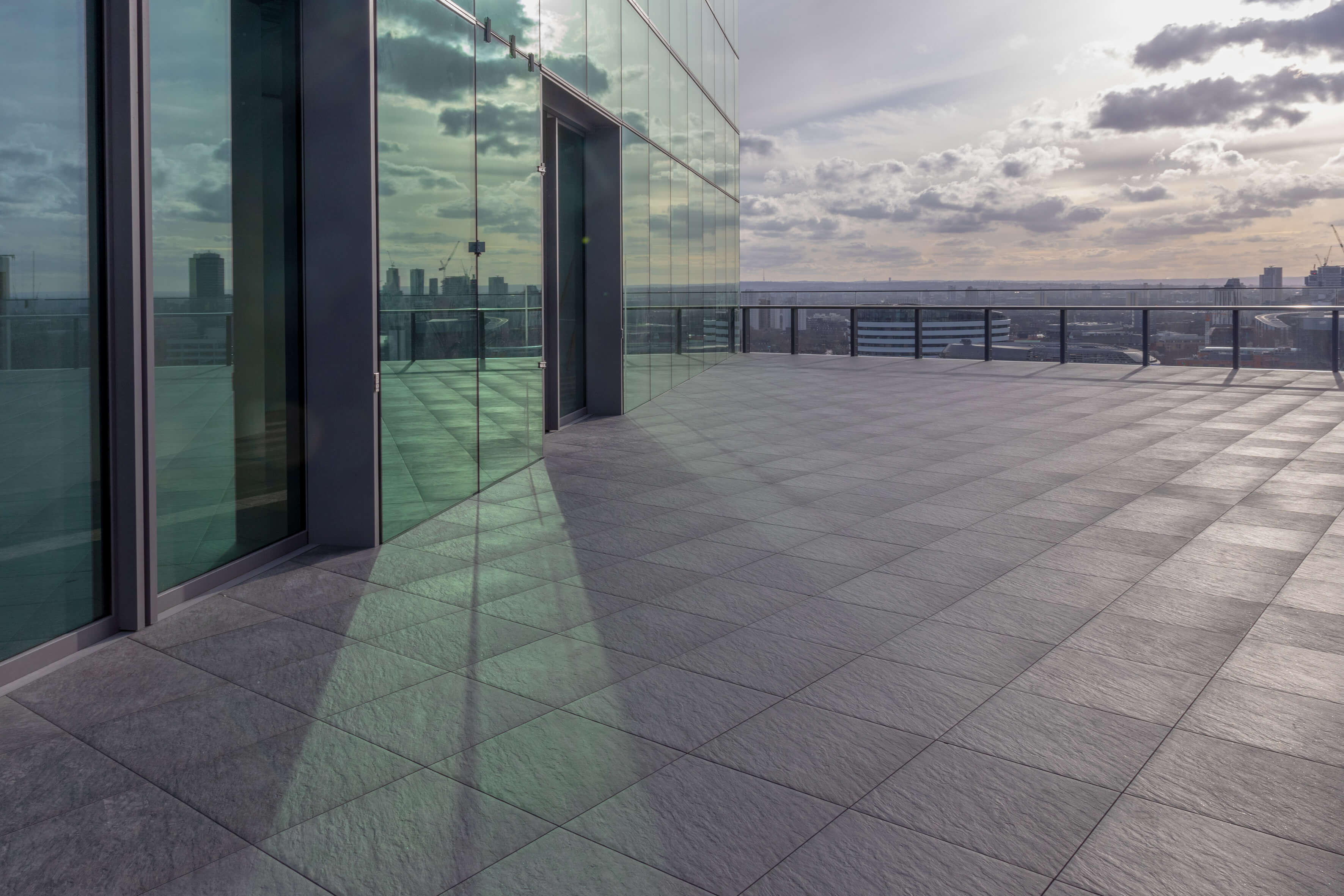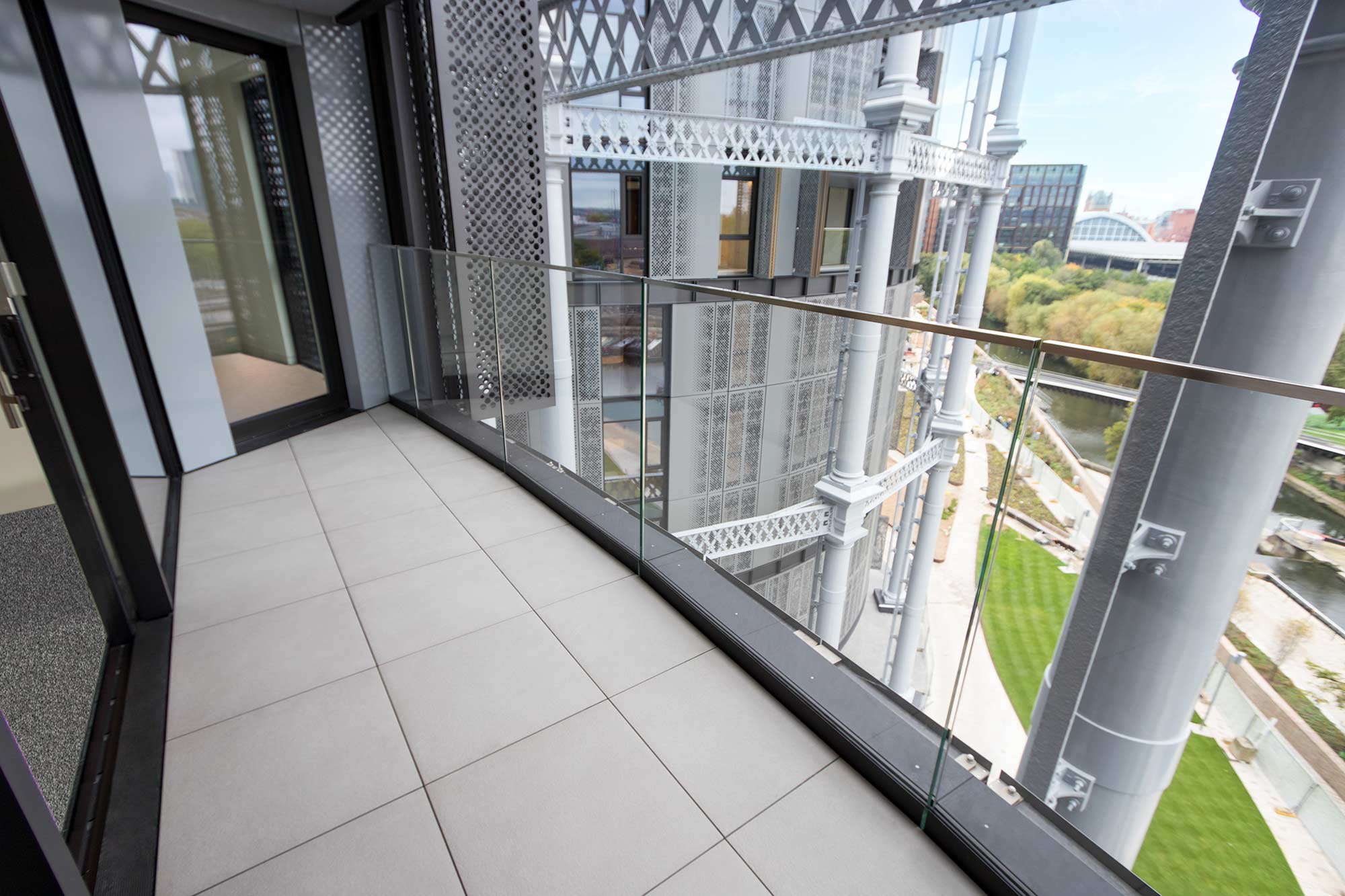
20 May A Buyers Guide to 20mm Porcelain Tiles
Until recently, few people in the UK had never even heard of 20mm porcelain but it’s now the fastest growing sector in the ceramics world. However, despite that popularity, there are still many misconceptions about how double thickness tiles are made and how even slight differences in the manufacturing process can result in significant differences to the performance characteristics of what you buy.
All 20mm porcelain is that same, right? Well, it depends on your criteria. If you are the type of person who considers all cake to be pretty much the same, then yes, but if your choice of cake is influenced by what actually goes into it, how well those ingredients are mixed, how it’s cooked, how it’s checked, how it’s decorated, then read more…
There are many suppliers of 20mm outdoor porcelain in the UK, at varying price points. In a confusing market, one thing is for certain – the quality of what you are buying is completely dependent on the factory that originally made it.
Manufacturing high quality 20mm outdoor porcelain tiles is hard to get right. Making porcelain tiles is a four stage process: ‘mix, make, fire and finish’ and rigorous attention to detail at every stage is crucial to the quality of the final product. Unfortunately, every part of every step is an opportunity to cut corners and reduce costs, which will result in a reduction in quality. Worse still, it’s very difficult to detect any of the cost cutting manufacturing compromises until the tiles are installed and in use.
The tiles you buy are a mix of clays, feldspar and silica. If supply routes substitute a little of the more expensive ingredients with a little more of the cheaper ones, the longer term result is that your finished tiles might not support the loads you were expecting them to. More immediately, the quality of the engobe, the inks, and the printing technology will all have a noticeable effect on the quality of surface pattern.

Next in the production process, kiln firing temperatures are what separate the men from the boys in the world of ceramics. Porcelain needs to go right up to 1,400ºC before it becomes the strongest ceramic you can buy, but changes size as it cools so ‘finishing’ the tiles properly must involve scanning for defects and calibrating them to a very exact size.
If you are installing on pedestals, you must ensure all the tiles in your order have been rectified to tolerances of less than 1mm. More importantly, if you are combining tiles from different factories into the same installation, you must establish the actual rectified dimensions they produce – 600 x 600 tiles from one factory might all be exactly 598 x 598, but that’s not going to help you if the tiles from your other manufacturer are all exactly 595 x 595.
Modern 20mm porcelain is justifiably popular because it offers enormous design opportunities, it’s quick and easy to install, and it’s the most maintenance free exterior flooring available. Porcelain will provide you with decades of robust and resilient performance and it’s guaranteed resistant from mould, moss, stains, scratches and colour change.
However, the more popular it becomes in the UK the more temptation there is to sneak cheaper, substandard products into the market. Exterior porcelain may well have R11 skid resistance, but if you don’t know what you’re buying, I’m afraid there are still many ways to slip up…
About Alfresco Floors:
Alfresco Floors are the UK’s leading specialist in the provision and installation of raised external floors for commercial and high-end domestic projects. From decking to paving, Alfresco floor offer an end-to-end service of technical design, materials supply and nationwide installation.



No Comments